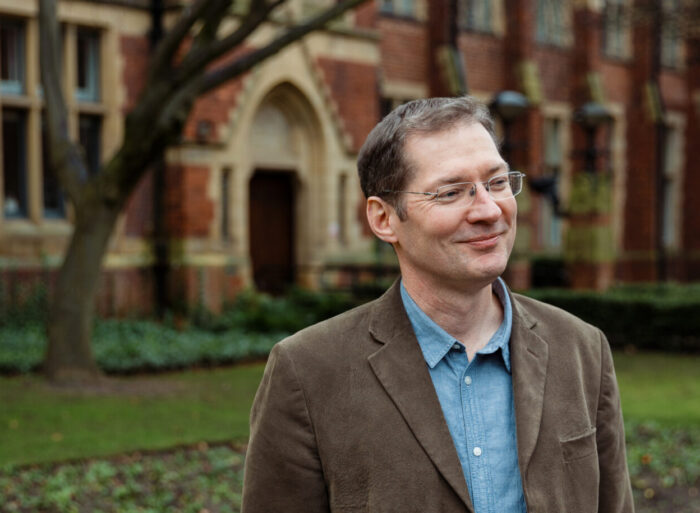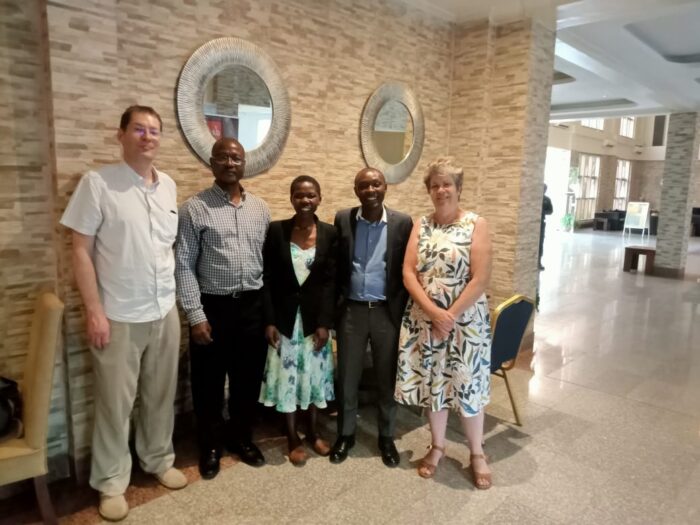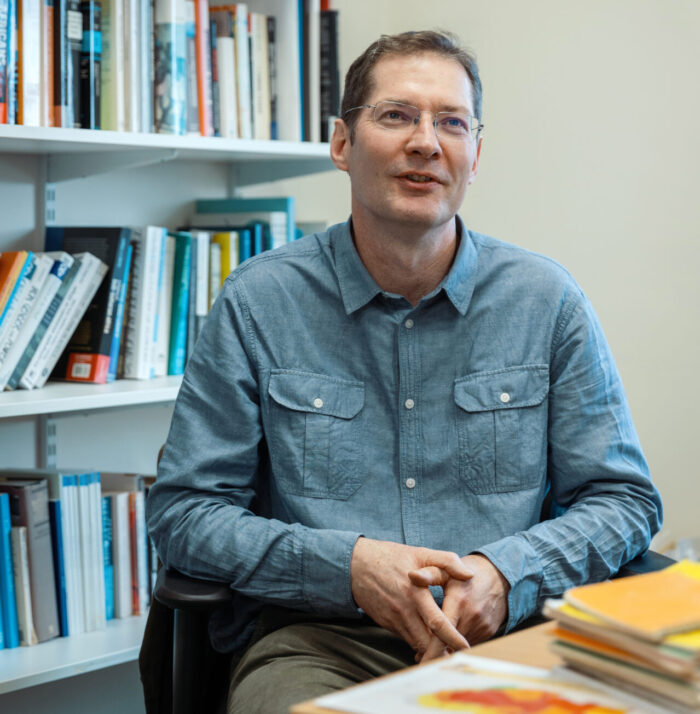Social and cultural causes of maternal mortality in East Africa
- Tags
- Case Study
Professor of African History Shane Doyle secured Impact Acceleration Account (IAA) funding to hold research dissemination workshops in Kenya, exploring social and cultural factors behind the region’s high maternal mortality rates
Shane’s research seeks to understand the cultural reasons why women in East Africa are at such high risk of death from maternity causes. ‘In our previous research, one thing that became clear is that maternal mortality rates in sub-Saharan Africa are incredibly high compared to the rest of the world,’ he explains. ‘In fact, in 2023, UNICEF stated the lifetime risk of women dying from maternity-associated concerns was 268 times higher than in Western Europe.
‘There are associated medical causes, such as malaria and HIV. Yet I wanted to analyse the societal and cultural factors. It was clear that relationships between clinical staff and patients were often problematic, leading to miscommunication, mistrust and delays in seeking and receiving treatment. I felt these were issues that had deep historical causes, but were also complicated products of recent change. I put together an interdisciplinary team of researchers from the fields of linguistics, social anthropology, theatre for development and, of course, history to explore this in depth.’
At the end of our first workshop, the head of the medical system in part of western Kenya invited us to come and present our work to people involved in formulating reproductive health policy in the region
Disciplines combining through social sciences
In April 2020, Shane had planned to do impact-related work at the same time as his research phase, using funding from his original source. Yet the Covid pandemic rapidly derailed his plans and, when the funding extensions ran out, he was keen to secure other opportunities.
‘A friend had been part of a previous IAA-funded project, and told me to look out for the next phase and think about applying,’ Shane says. ‘Academically, my work is designed to create beneficial impact in East African regions, and its interdisciplinary elements fall within social sciences. I felt LSSI would be a good home for my research.’

Bringing people together to uncover different perspectives
‘One of the biggest advantages of IAA funding is its immediacy, which I was particularly grateful for after long, Covid-restricted delays,’ says Shane. ‘I received the funds soon after approval. Returning to Kenya while the relationship between Covid and maternal mortality was still fresh in people’s minds was really important, so thankfully I was able to do the planned work within a couple of months.’
The dissemination workshop in Kenya was entirely IAA funded, so Shane and his team could make vital connections with their project collaborators in person. ‘Kenyan pandemic restrictions meant we couldn’t gather everyone in one place until January 2023,’ Shane explains. ‘Of course, the nature of dissemination is sharing our findings and offering perspectives as external researchers. Yet we want, and need, to hear from collaborators and other interested parties as to whether what we’re saying makes sense to them. So face-to-face meetings with policymakers, health-focussed non-governmental organisations (NGOs) and practitioners were crucial.’
Collaborative conversations to explore new opportunities
Shane and his team gathered up to 60 people with different expertise at a venue in their focus region so they could share experiences, build connections and discuss complex issues. ‘These incredible conversations wouldn’t normally be able to happen,’ Shane says. ‘I could hear people agreeing and disagreeing – such as around the impact of Covid on maternal health – sharing reflections and understanding other viewpoints.
‘Discovering which aspects of our work seemed surprising to delegates meant we could evaluate the areas we need to think about further,’ he adds. ‘Through these encounters, as we discussed previous findings, we also explored some new issues. This included how Covid has further increased communities’ suspicions of maternal health workers, and how common it is for women to be lost to medical observation following delivery. Bringing information together in this way is incredibly positive for us as academics.’
Ongoing impact beyond expectations
Shane uncovered some welcome, unexpected outcomes from his dissemination work in Kenya. ‘The biggest health-focussed NGO in Africa asked one of the coinvestigators on our project to replicate her methodology to train their staff to do similar research themselves,’ he says. ‘We also met with another NGO to develop our ideas around post-natal mortality, where there’s a major gap in knowledge among professionals and patients.
‘At the end of our first workshop, the head of the medical system in part of western Kenya invited us to come and present our work to people involved in formulating reproductive health policy in the region,’ Shane continues. ‘They made the main findings of our work their primary recommendations for change. First, they recommended that all health information be presented in [the region’s] indigenous language. Most printed information is in English or the official Kenyan language, Kiswahili, whereas including the more common first language of Luo would make it more accessible locally. Secondly, they recommended that the maternal health policies always be conscious of the social, historical, anthropological and bio-psychosocial connection between illness and health.
It’s incredibly pleasing to see these recommendations made. I would need to return to western Kenya to evaluate how far these policies have been put in place. Yet without the IAA funding, we wouldn’t have been there to have these crucial conversations to begin with.
Shane is now keen to explore how more funding could expand these findings and the impact of his research. ‘The region where we worked has the highest post-delivery maternal death rate in Kenya, which we think can be addressed as a community health issue,’ he concludes. ‘We’d like to further share and apply our research on the gap between current levels of knowledge and engagement within the community and what the WHO guidelines recommend.’
The IAA supports a portfolio of activities and resources across the social science community which will maximise the potential for impact of social science research and contribute to economic and societal development regionally, nationally, and internationally. To find out more about LSSI IAA funding please visit our dedicated webpage.
Link to Professor Doyle’s project: Maternal Mortality in East Africa.

Photograph left to right: Prof Shane Doyle, Dr Benson Mulemi (University of Pretoria, Co-investigator in the original project, a social anthropologist); Biddy Odindo (a research assistant on the original project, who helped with the local organisation of the dissemination meetings); Emmanuel Milimo (a research assistant on the original project, who helped with the local organisation of the dissemination meetings); Prof. Jane Plastow (University of Leeds, Co-investigator in the original project, who works on Theatre for Development). The location is the Vic Hotel, Kisumu, western Kenya. This was the venue for the main dissemination meeting in Jan 2023.

